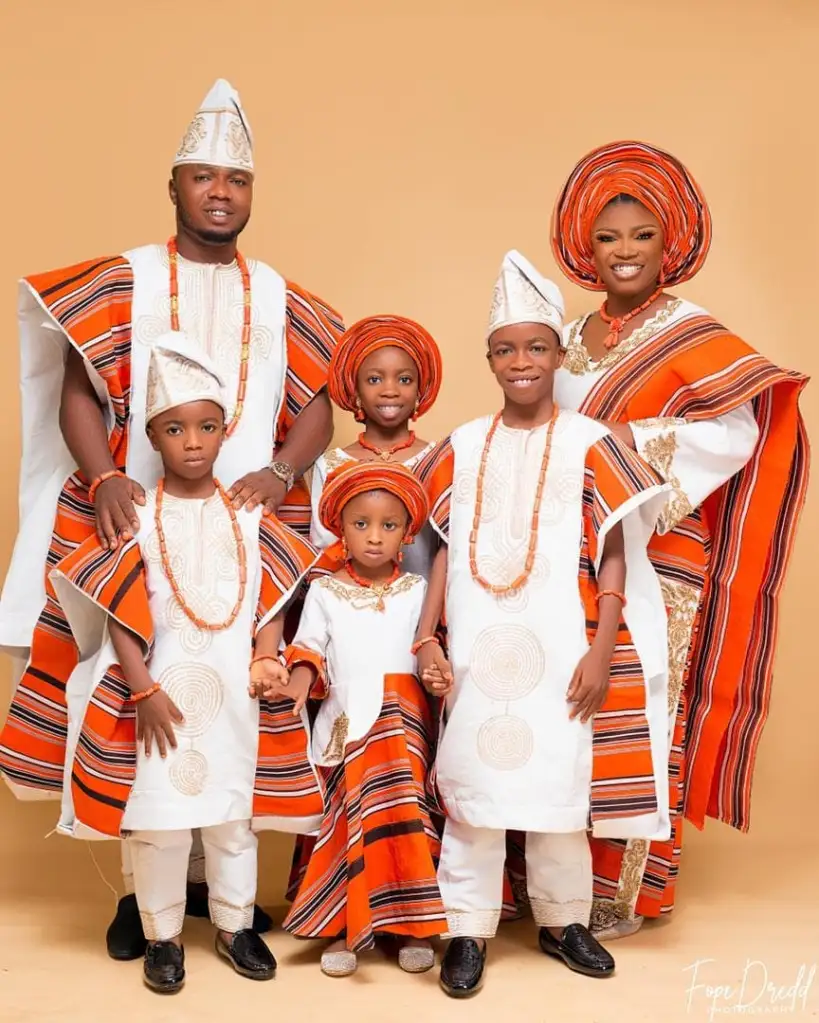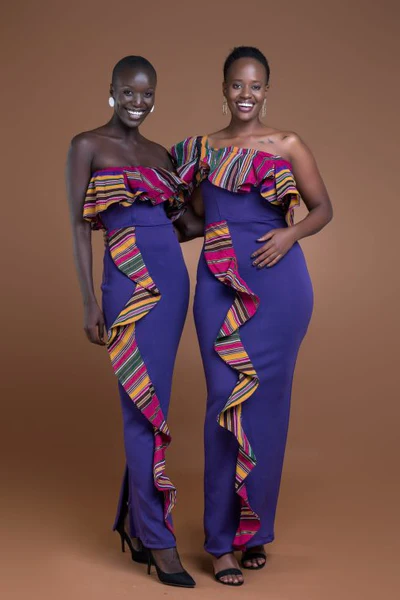Africa is a continent rich in culture, diversity, and history, and its fashion scene is no exception. While Africa's influence on global fashion has grown, several cities have emerged as critical players in the continent's fashion landscape. Fashion Cities Africa reveals the captivating variety within the fashion landscapes of four prominent African metropolises: Casablanca (Morocco🇲🇦), Lagos (Nigeria🇳🇬), Nairobi (Kenya🇰🇪), and Johannesburg (South Africa🇿🇦). Each of these cities offers a unique and dynamic perspective on African fashion. In this article, we will explore the distinctive style scenes of these African fashion hubs.
Casablanca: The Moroccan Fashion Oasis
Casablanca, Morocco, has emerged as a North African fashion hub. Moroccan fashion is characterized by its intricate detailing, luxurious fabrics, and a solid connection to the nation's historical influences. The country's rich tapestry of Berber, Arab, and French cultures is intricately woven into its fashion, creating a unique blend of styles. Casablanca is well-known for its vibrant textile industry, where traditional craftsmanship meets modern design. The city is a hotspot for emerging talents like Bouchra Jarrar and Amine Bendriouich, pushing Moroccan fashion into the international spotlight.Lagos: Where Tradition Meets Innovation
Lagos, Nigeria, is undoubtedly one of the fashion capitals of West Africa. This bustling metropolis harmoniously fuses its rich cultural heritage with a modern, entrepreneurial spirit.
Traditional
Nigerian clothing, including vibrant Ankara prints and the elegance of
Aso Ebi styles, has been reimagined and has earned recognition on the
global stage. Leading designers such as Lisa Folawiyo and Deola Sagoe are at the forefront of this fashion renaissance.
Lagos Fashion Week is a shining example of the city's influence, attracting designers, buyers, and fashion enthusiasts from across the globe.
Nairobi: The Cradle of East African Elegance
Diverse influences from African, European, and Asian cultures characterize the city's fashion landscape. Nairobi, Kenya, represents the epitome of East African sophistication and elegance.
The city's fashion designers are celebrated for their meticulous craftsmanship and an unwavering commitment to detail. Nairobi's fashion landscape showcases the diversity of Kenyan culture, featuring Maasai-inspired beadwork, Kikoy fabrics, and Kitenge prints.
Nairobi also stands as a hub for sustainable fashion practices. Designers increasingly adopt eco-friendly principles and incorporate locally sourced materials into their creations. Brands such as Lalesso and Suave epitomize Nairobi's dedication to environmental responsibility while crafting stylish and contemporary clothing.
Johannesburg: The South African Style Powerhouse
Johannesburg, South Africa, serves as the epicenter of Southern African fashion. Diverse influences from African, European, and Asian cultures characterize the city's fashion landscape.
South African designers are celebrated for their bold prints, unconventional silhouettes, and a profound sense of identity.
One of the most iconic trends to emerge from Johannesburg is the use of vibrant, geometric patterns, reflecting the city's penchant for street style and contemporary design. Rising talents like Thebe Magugu and Rich Mnisi are at the forefront of this wave.
Johannesburg Fashion Week is a prominent platform that showcases the city's evolving fashion identity. It emphasizes the fusion of various cultures and the potential for African designers to impact the global fashion stage.
Unity in Diversity
Their ability to seamlessly blend tradition and modernity binds these four fashion capitals together. African fashion celebrates diversity, reflecting the multitude of cultures and traditions. While Lagos, Nairobi, Casablanca, and Johannesburg each have unique style scenes, they share a joint commitment to preserving African heritage while pushing the boundaries of creativity.
These cities are more than clothing; they are about storytelling, culture preservation, and pushing the limits of artistry. They serve as platforms for emerging talents and a source of inspiration for designers worldwide.
African fashion is not just a trend but a movement here to stay. Casablanca, Lagos, Nairobi, and Johannesburg are essential pillars in the global fashion landscape, representing the rich tapestry of African creativity and culture. The fashion scenes in these cities exemplify the continent's ability to embrace its heritage while shaping the future. As the world continues to discover and appreciate African fashion, these cities will remain at the forefront of this dynamic and evolving industry.
From the shores of Lagos to the Moroccan markets of Casablanca, the savannahs of Nairobi, and the urban jungle of Johannesburg, African fashion shines. La Djalobienne Eton
References:
- https://nleworks.com/case/fashion-cities-africa/
- https://www.intellectbooks.com/fashion-cities-africa
- https://theasoebijunkie.wordpress.com/2021/02/09/asoebi-extravaganza-2021/comment-page-1/
- Hannel, Susan. "FASHION CITIES AFRICA." Fashion, Style, & Popular Culture, vol. 6, no. 3, Oct. 2019, pp. 452+. Gale Academic OneFile, link.gale.com/apps/doc/A597810101/AONE?u=anon~785f7529&sid=googleScholar&xid=8c7ce4bb. Accessed 17 Oct. 2023.
















No comments:
Post a Comment